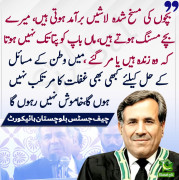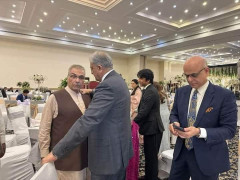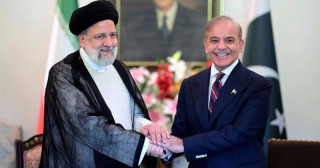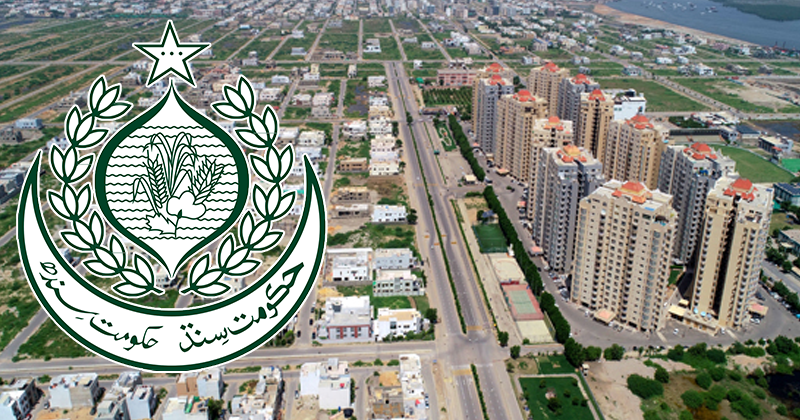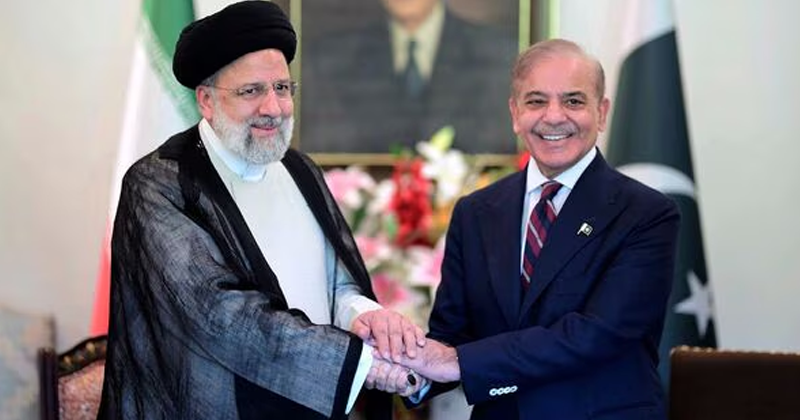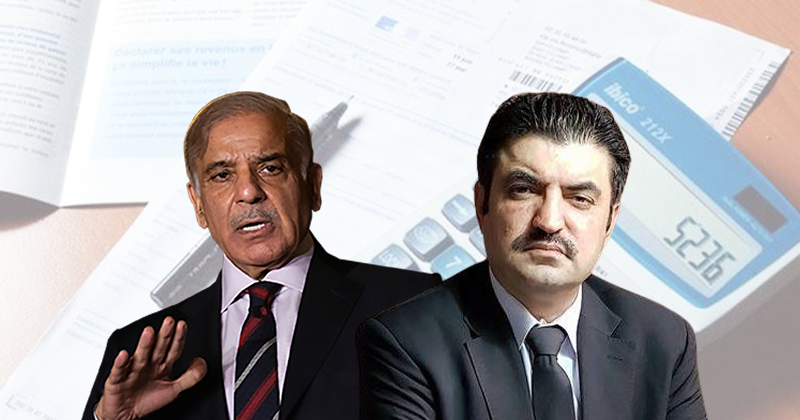Qatar-Pakistan trade gains momentum
07 Nov 2019 - 0:26
H E Ali bin Ahmed Al Kuwari (right), Minister of Commerce and Industry, and Omar Ayub Khan, Pakistan’s Federal Minister for Power, Petroleum and Natural Resources, signing a document on the sidelines the fifth session of the Qatari-Pakistani Joint Ministerial Committee for Trade and Technical Cooperation, in Doha.

The Peninsula
DOHA: H E Ali bin Ahmed Al-Kuwari, Minister of Commerce and Industry, and Omar Ayub Khan, Pakistan’s Federal Minister for Power, Petroleum and Natural Resources, chaired the fifth session of the Qatari-Pakistani Joint Ministerial Committee for Trade and Technical Cooperation, which was held in Doha on November 4-5.
Discussions touched on the promotion of bilateral cooperation across various sectors of interest to both countries.
In his opening remarks, Al Kuwari said the meeting marks a new milestone in the exceptional and distinguished journey of bilateral cooperation.
He hailed the strong friendly relations that Qatar and Pakistan have enjoyed since the 1970s, noting that bilateral relations have been strengthened by the exchange of official visits including the latest visit by the Amir H H Sheikh Tamim bin Hamad Al-Thani to Islamabad, and the Prime of Minister of Pakistan’s visit to Qatar in January and July 2019.
These historic visits have reflected positively on bilateral cooperation across numerous fields, especially at the trade and investment levels, he said.
Al Kuwari added that bilateral trade has gained considerable momentum, increasing by 62.5 percent to around QR9.52bn in 2018 compared to QR5.86bn in 2016, noting that Pakistan ranks as Qatar’s tenth largest trading partner, accounting for 2.26 percent of Qatar’s foreign trade.
The Minister explained that Pakistani companies are also playing a key role in supporting the Qatari economy, noting that 1488 companies, jointly owned by Qatari and Pakistani citizens, are operating in Qatar in the fields of energy, contracting, services, manufacturing, and the leasing of heavy equipment while 7 companies fully owned by Pakistani citizens are operating in the banking, hospitality, contracting, and engineering sectors.
On the other hand, Pakistan represents an attractive destination for Qatari investments in various sectors including agriculture, information technology, communications, finance and insurance and real estate among other industries, he said.
The existing Qatari-Pakistani bilateral agreements and memoranda of understanding play a key role in strengthening bilateral relations, particularly the economic cooperation agreement and the agreement on the mutual promotion and protection of investments.
In this context, the Minister emphasised the importance of coordinating the activation of signed MoUs and the establishment and activation of the Qatari-Pakistani Businessmen Council, which should regularly meet to strengthen ties between the business sectors in both countries and encourage joint investment in small and medium sized enterprises and creative projects that bring added value to the economy.
On Qatar’s economic reforms, the Minister said the economic policies that Qatar has adopted over the past years and the solid growth rates across all sectors have contributed significantly to boosting investor confidence in the national economy and encouraging foreign investors to tap the Qatari market.
Qatar’s balanced economic policies and decisions, investment-friendly environment, strategic location and advanced infrastructure have cemented its position as a regional and global trade hub. Pakistani companies that choose to invest or expand in Qatar may take advantage of several incentives.
These include business-friendly regulations and legislations including the law regulating the investment of non-Qatari capital in economic activities and the law regulating the foreign ownership of properties, which allow 100 percent ownership across various sectors and economic, trade and real estate activities.
Amendments introduced to the free zone investment law also contribute to the flow of foreign direct investment into Qatar and to enhancing bilateral trade with its various partners. The investors in free zone benefit from numerous incentives including up to 100 percent ownership and access to investment funds to export to local and regional market as well as the opportunity to enter into a partnership with state-backed local companies.
On the first day of the committee’s meeting, the two sides assessed cooperation in various fields including trade, investment, industry, sports, culture, infrastructure, manufacturing, construction, civil aviation, agriculture, health, education, tourism and energy.
Source
07 Nov 2019 - 0:26
H E Ali bin Ahmed Al Kuwari (right), Minister of Commerce and Industry, and Omar Ayub Khan, Pakistan’s Federal Minister for Power, Petroleum and Natural Resources, signing a document on the sidelines the fifth session of the Qatari-Pakistani Joint Ministerial Committee for Trade and Technical Cooperation, in Doha.

The Peninsula
DOHA: H E Ali bin Ahmed Al-Kuwari, Minister of Commerce and Industry, and Omar Ayub Khan, Pakistan’s Federal Minister for Power, Petroleum and Natural Resources, chaired the fifth session of the Qatari-Pakistani Joint Ministerial Committee for Trade and Technical Cooperation, which was held in Doha on November 4-5.
Discussions touched on the promotion of bilateral cooperation across various sectors of interest to both countries.
In his opening remarks, Al Kuwari said the meeting marks a new milestone in the exceptional and distinguished journey of bilateral cooperation.
He hailed the strong friendly relations that Qatar and Pakistan have enjoyed since the 1970s, noting that bilateral relations have been strengthened by the exchange of official visits including the latest visit by the Amir H H Sheikh Tamim bin Hamad Al-Thani to Islamabad, and the Prime of Minister of Pakistan’s visit to Qatar in January and July 2019.
These historic visits have reflected positively on bilateral cooperation across numerous fields, especially at the trade and investment levels, he said.
Al Kuwari added that bilateral trade has gained considerable momentum, increasing by 62.5 percent to around QR9.52bn in 2018 compared to QR5.86bn in 2016, noting that Pakistan ranks as Qatar’s tenth largest trading partner, accounting for 2.26 percent of Qatar’s foreign trade.
The Minister explained that Pakistani companies are also playing a key role in supporting the Qatari economy, noting that 1488 companies, jointly owned by Qatari and Pakistani citizens, are operating in Qatar in the fields of energy, contracting, services, manufacturing, and the leasing of heavy equipment while 7 companies fully owned by Pakistani citizens are operating in the banking, hospitality, contracting, and engineering sectors.
On the other hand, Pakistan represents an attractive destination for Qatari investments in various sectors including agriculture, information technology, communications, finance and insurance and real estate among other industries, he said.
The existing Qatari-Pakistani bilateral agreements and memoranda of understanding play a key role in strengthening bilateral relations, particularly the economic cooperation agreement and the agreement on the mutual promotion and protection of investments.
In this context, the Minister emphasised the importance of coordinating the activation of signed MoUs and the establishment and activation of the Qatari-Pakistani Businessmen Council, which should regularly meet to strengthen ties between the business sectors in both countries and encourage joint investment in small and medium sized enterprises and creative projects that bring added value to the economy.
On Qatar’s economic reforms, the Minister said the economic policies that Qatar has adopted over the past years and the solid growth rates across all sectors have contributed significantly to boosting investor confidence in the national economy and encouraging foreign investors to tap the Qatari market.
Qatar’s balanced economic policies and decisions, investment-friendly environment, strategic location and advanced infrastructure have cemented its position as a regional and global trade hub. Pakistani companies that choose to invest or expand in Qatar may take advantage of several incentives.
These include business-friendly regulations and legislations including the law regulating the investment of non-Qatari capital in economic activities and the law regulating the foreign ownership of properties, which allow 100 percent ownership across various sectors and economic, trade and real estate activities.
Amendments introduced to the free zone investment law also contribute to the flow of foreign direct investment into Qatar and to enhancing bilateral trade with its various partners. The investors in free zone benefit from numerous incentives including up to 100 percent ownership and access to investment funds to export to local and regional market as well as the opportunity to enter into a partnership with state-backed local companies.
On the first day of the committee’s meeting, the two sides assessed cooperation in various fields including trade, investment, industry, sports, culture, infrastructure, manufacturing, construction, civil aviation, agriculture, health, education, tourism and energy.
Source




